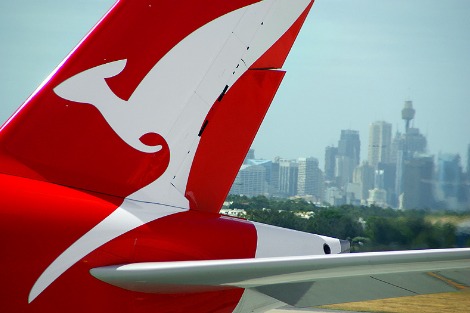 Discussion of government assistance to Qantas is inevitably clouded by emotion, despite increasing commentary on management blunders. No patriotic Australian wants to see the ‘flying kangaroo’ go out of business, as Australia’s other airline icon Ansett did a little more than a decade ago. But if Qantas is to properly serve the Australian people, it has to be on the basis of good business and not emotion.
Discussion of government assistance to Qantas is inevitably clouded by emotion, despite increasing commentary on management blunders. No patriotic Australian wants to see the ‘flying kangaroo’ go out of business, as Australia’s other airline icon Ansett did a little more than a decade ago. But if Qantas is to properly serve the Australian people, it has to be on the basis of good business and not emotion.
There is a real possibility that the world’s oldest continuously operating airline could fail, in a fast changing aviation marketplace that requires companies to have the ability to attract vast amounts of capital in order to survive. The bad news for Qantas is that the credit rating agency Standard and Poors has downgraded Qantas to junk status, which means it will lose comparatively easy access to the funds it needs to survive.
This follows the airline’s advice to the Australian Stock Exchange on Thursday that it is in big trouble. It cited an underlying $250-300 million loss before tax in the six months to 31 December. This is forcing the loss of another 1000 jobs, and the share price has plunged in recent days.
There is consequent pressure for a massive government cash injection to help Qantas return to profitability and put the brakes on its successful competitor Virgin by halting a $350 million capital injection by its foreign shareholders.
However lessening competition means only one thing for the Australian people, and that is higher fares. This would mean a reversal of one of the great economic miracles of recent times that has proved capitalism can promote social inclusion. That is the explosion of competition in the global aviation marketplace and the low fares revolution this has produced.
As recently as two decades ago, low income citizens of western countries could not afford to fly. In the new age of competition and low fares, many people living close to the poverty line can fly interstate or even overseas to visit family or attend to their business and cultural needs. But if the Australian Government helped Qantas out of trouble by making it less attractive for foreign airline interests to invest in the Australian market, fares would rise significantly and flying would once again become the preserve of the wealthy.
The improvement in the access of ordinary people to the skies ranks alongside advances in health an education that have improved the lives of many. Pope Francis said as much in his recent apostolic exhortation Evangelii Gaudium when he suggested ‘we can only praise the steps being taken to improve people’s welfare in areas such as health care, education and communications’. In the section headed ‘No to an economy of exclusion’, he insisted that ‘those excluded are no longer society’s underside or its fringes or its disenfranchised – they are no longer even a part of it’.
According to the pope’s critique, any government assistance to Qantas that thwarts competition will also thwart those on the margins of society who have been enabled to fly by the low fares that are the result of competition. If the flying kangaroo cannot compete, it should be put out of its misery, or at least change its management.
 Michael Mullins is editor of Eureka Street.
Michael Mullins is editor of Eureka Street.